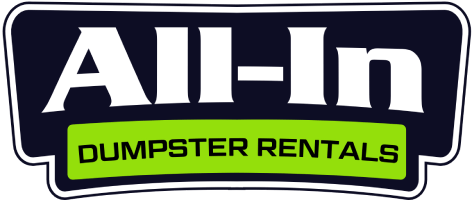Looking for guidance on hazardous waste management in Asheville? Our comprehensive compliance checklist helps local businesses safely handle and dispose of hazardous materials while meeting all regulations.
_______________________________
Hazardous Waste Compliance Requirements for Asheville Businesses
Managing hazardous waste isn’t just about following rules—it’s about protecting our beautiful Asheville community and environment. As a local business owner, navigating hazardous waste regulations can feel overwhelming, but you don’t have to figure it out alone. At All-In Dumpster Rentals, we’re committed to helping Asheville businesses handle waste responsibly. This guide walks you through essential compliance requirements, helping you avoid costly violations while safeguarding our mountain community.
Understanding Hazardous Waste Classifications
Before diving into compliance requirements, you need to know what qualifies as hazardous waste. The EPA classifies waste as hazardous if it shows one of these characteristics:
Ignitable materials catch fire easily (solvents, certain paints, gasoline)
Corrosive substances can eat through containers (strong acids, bases)
Reactive waste can explode or release toxic gases when mixed with other substances
Toxic materials harm people or the environment when absorbed or ingested
Many Asheville businesses, from auto shops to manufacturing facilities, generate these wastes daily. Identifying what you’re working with is your first step toward proper management.
North Carolina’s Hazardous Waste Requirements
North Carolina follows federal RCRA (Resource Conservation and Recovery Act) guidelines but has additional state-specific requirements. Your obligations depend on how much hazardous waste your business generates monthly:
Very Small Quantity Generators (VSQGs)
If your Asheville business generates less than 220 pounds of hazardous waste monthly, you have fewer regulatory requirements. You still need to identify all hazardous waste, use proper containers, and ensure delivery to authorized treatment or disposal facilities. While paperwork requirements are minimal, maintaining good records is still smart business practice.
Small Quantity Generators (SQGs)
Businesses generating between 220 and 2,200 pounds monthly face more stringent requirements. You’ll need an EPA identification number, proper container labeling, employee training programs, and a contingency plan for emergencies. You can store waste on-site for up to 180 days (or 270 days if shipping to a distant facility).
Large Quantity Generators (LQGs)
If your operation produces over 2,200 pounds of hazardous waste per month, you face the most comprehensive requirements, including detailed written waste management plans, regular employee training, and storage limitations of 90 days. You’ll also need to submit biennial hazardous waste reports.
Essential Compliance Steps for Asheville Businesses
Waste Identification and Tracking
Start by conducting a waste audit to identify all hazardous materials your business generates. Implement a tracking system that documents waste from generation through disposal. This creates the paper trail regulators expect to see during inspections.
Proper Storage Practices
Store hazardous waste in compatible containers with secure lids, clearly labeled with contents and accumulation start dates. Your storage area should have secondary containment to prevent spills from reaching the environment, adequate aisle space, and be inspected weekly for leaks or deterioration.
Employee Training Requirements
Even the best systems fail without proper training. Ensure all staff handling hazardous waste receive thorough training on identification, handling, emergency procedures, and documentation requirements. Regular refresher courses keep everyone up-to-date on changing regulations.
Transportation and Disposal
When it’s time for disposal, hazardous waste must be transported by licensed hazardous waste transporters using proper manifests. The waste must go to permitted treatment, storage, or disposal facilities. Never mix hazardous waste with regular trash or pour it down drains—violations carry serious penalties.
Record Keeping and Reporting
Maintain detailed records of all hazardous waste activities for at least three years. This includes manifests, land disposal restriction forms, training documentation, and inspection logs. Depending on your generator status, you may need to submit regular reports to state environmental agencies.
Local Asheville Resources for Hazardous Waste Management
Buncombe County offers periodic hazardous waste collection events for certain materials. The North Carolina Department of Environmental Quality provides technical assistance and guidance for businesses struggling with compliance issues. Taking advantage of these local resources can simplify your compliance efforts.
The Consequences of Non-Compliance
The stakes are high when it comes to hazardous waste violations. Penalties can include substantial fines (often thousands of dollars per day per violation), legal liability for cleanup costs, and even criminal charges for knowing violations. Beyond regulatory consequences, improper handling risks damage to Asheville’s precious natural resources and your business reputation.
Partner with All-In Dumpster Rentals for Compliant Waste Solutions
While All-In Dumpster Rentals doesn’t directly handle hazardous waste in our standard dumpsters, we’re committed to helping Asheville businesses manage their waste streams properly. We can help you separate non-hazardous construction debris, yard waste, and general trash, reducing your overall waste management burden so you can focus on properly handling specialized materials.
Need Help With Your Waste Management?
Your waste challenges are unique, and we’re here to help figure out the best approach for your specific needs. Give us a call at [phone number] for a free consultation about your non-hazardous waste needs, or to get referrals to trusted hazardous waste handlers in the Asheville area. Operating from 6:30 am to 7:00 pm, 7 days a week, we’re always available when you need guidance.
As a local, family-owned business, we share your commitment to keeping Asheville beautiful. Proper waste management isn’t just about compliance—it’s about protecting the community we all call home.
